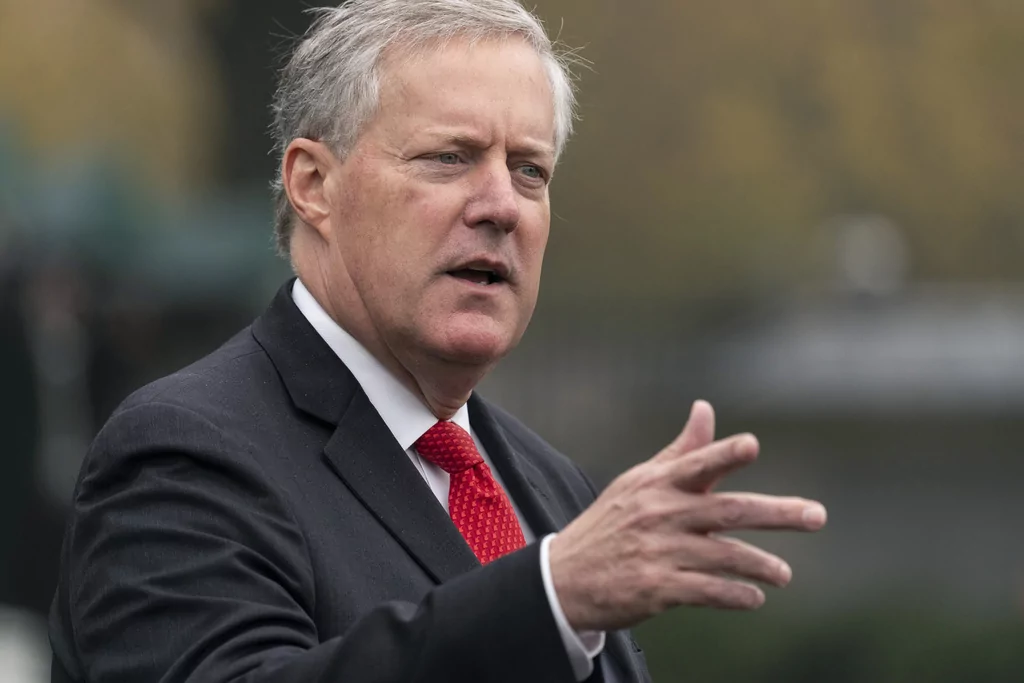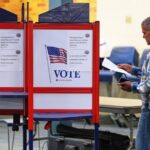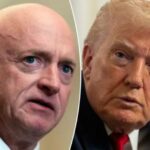
Mark Meadows asked the Supreme Court to consider his bid to move his election interference charges in Georgia to federal court, citing the high court’s recent landmark decision on presidential immunity.
Meadows, former President Donald Trump’s onetime chief of staff, argued in a petition, made public over the weekend, that federal court was the appropriate venue for the two election charges brought against him by Fulton County District Attorney Fani Willis.
“It is hard to imagine a case in which the need for a federal forum is more pressing than one that requires resolving novel questions about the duties and powers of one of the most important federal offices in the Nation,” Meadows’s attorneys wrote.
Meadows’s petition to the Supreme Court comes after the 11th U.S. Circuit Court of Appeals rejected Meadows’s request in December.
The former chief of staff’s argument to the appellate court was twofold. Meadows claimed that he should have his case removed to federal court, but this requires a federal defense. Meadows therefore said that his federal defense would be that the actions cited in Willis’s indictment were protected from prosecution because they were part of Meadows’s official duties as White House chief of staff.

Meadows’s attorneys said the appellate court erred in ruling that former officials such as Meadows are not entitled to federal removal the same way current officials are. Additionally, the appellate court found Meadows’s actions cited in Willis’s indictment were not part of his official job duties.
“That decision defies statutory text, context, history, and common sense,” Meadows’s attorneys wrote in their Supreme Court petition.
The attorneys were able to heavily reference the Supreme Court’s decision that presidents enjoy absolute immunity from criminal prosecution for certain actions they perform in their official capacity.
Meadows’s use of the decision, which the Supreme Court made in response to Trump’s election case in Washington, D.C., is the latest instance of the ruling’s reverberating effects. Trump has already wielded it in Florida and New York, and some of Trump’s co-defendants in Georgia, such as Meadows, were expected to make use of it, as well.
“Just as immunity protection for former officers is critical to ensuring that current and future officers are not deterred from enthusiastic service, so too is the promise of a federal forum in which to litigate that defense,” Meadows’s attorneys wrote.
Meadows’s petition comes more than seven months after the 11th Circuit denied Meadows’s request, an unusually lengthy duration for a defendant seeking the Supreme Court’s intervention in a case.
Meadows’s attorneys had asked in May for an extension to file their request, in part because Trump’s immunity case was still pending at the time. Justice Clarence Thomas, who is assigned to oversee matters of the 11th Circuit, granted Meadows two extensions.
CLICK HERE TO READ MORE FROM THE WASHINGTON EXAMINER
While the Supreme Court considers whether to take up Meadows’s federal removal argument, the case is halted at the district level while an appellate court considers the unrelated argument that Willis should be disqualified as prosecutor over a conflict of interest.
The Georgia Court of Appeals will hear arguments on the disqualification matter in December.






